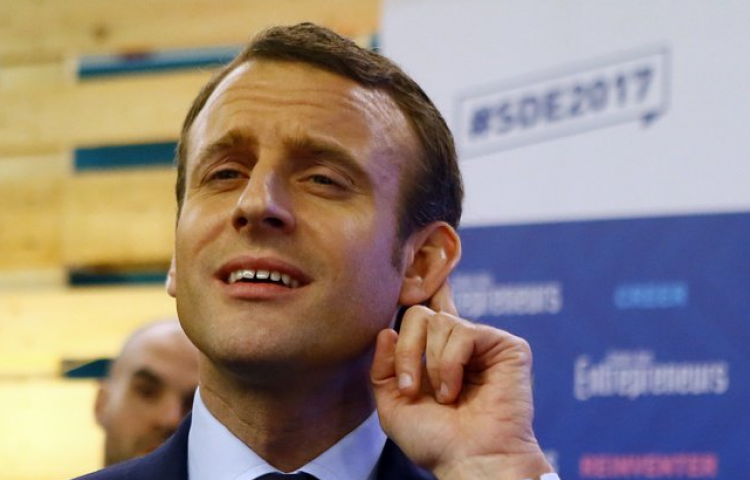On Sunday, May 14, French President Francois Hollande will hand over power to leader of the En Marche! movement Emmanuel Macron, who took 66% of the vote in the presidential election against the leader of the National Front party Marine Le Pen, who gained 34% of the vote. Now France lives in anticipation of the parliamentary elections, the new president's policy will largely depend on which.
"Macron as a project continues to be realized, embodying the breakdown of the party-political system of the fifth republic. The general customer of this project is the European bureaucracy, Brussels, and the direct sponsor is big business, transnational corporations," the director of the International Institute of the Newest States, Alexey Martynov, said. According to him, the 'Macron project' uses the maximum administrative and unlimited financial resource, the best staff of political technologists, and not only French ones. "I am almost sure that at the parliamentary elections they will solve their task this way as well ... Today there is a serious crisis of ideas in France. On the one hand, they expect a new hero who will return France to its previous state of glory, including in the international arena, and on the other hand, there is no such hero, and these ideas cannot be articulated".

Executive Director of France's Institut des Libertés Emmanuelle Gave recalled that "Macron was nominated by the business community, a certain political environment, which saw him as its knight, capable of leading them forward." But Gave is not sure that Macron will represent the historical, deep-seated interests of France: "There is a deep division among the French today. Traditional right-wing forces simply betrayed the country, but left-wing politicians also betrayed the people. I do not know whether parliamentary elections will be able to unite the French people".
The research associate of the Russian Institute of Strategic Studies, Nadezhda Uzunova, is convinced that self-sufficiency of Russian-French relations is now being lost: "France is increasingly being oriented towards Europe, and our relations are becoming more dependent on France's relations with the EU, the United States, and the domestic political situation within France. The evolution of relations between Russia and France will develop depending on France's policy in its key directions".

The researcher of the department of European political studies at the Institute of World Economy and International Relations of the Russian Academy of Sciences, Pavel Timofeev, believes that "one of the most interesting features of the current campaign is that in the autumn most of the French were unhappy with the outcome of the presidency of François Hollande, so it seems a paradox that out of all the candidates the French chose the most systemic Macron. What does this mean? The outcome of the parliamentary elections will answer this question. As for Marine Le Pen, she seriously improved her result in comparison with her father's results of 2002. Does it speak of an upsurge of the right or the ultra-right in France? If we look at this situation more broadly, not so much in French as in the Euro-Atlantic context, then there was an unexpected Brexit, Trump's even more unexpected victory... The National Front demonstrated that it is becoming a significant party in the political field of France. But it is a big question what the parliamentary elections will show. The National Front has very little chance to gain more than 20-30 seats for deputies.
The head of the Department of International Relations and Diplomacy at Moscow Humanitarian University, Nikolai Platoshkin, gave a very harsh assessment to the French president, calling him "a candidate of charming, delightful glamorous emptiness". "Four million French people dropped empty ballots into ballot boxes. This has never happened in the republic. The election results are the end of the Fifth Republic. The French obviously want a left agenda. If Macron continues his so-called 'reforms', I think that he will not hold out for a long time and repeat Hollande's fate, who tried to do something, and then simply served out the rest of his presidential term for four years".






